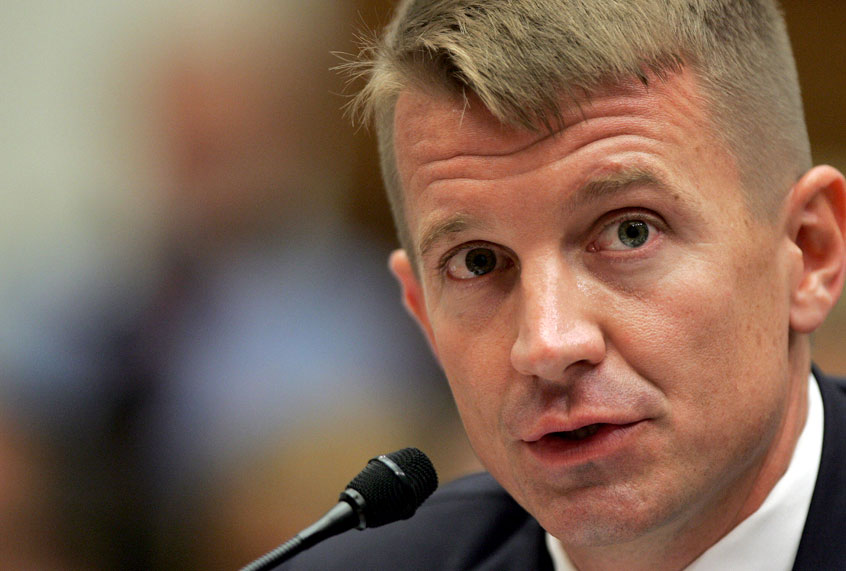The House Intelligence Committee will refer Blackwater founder Erik Prince to the Justice Department for possible prosecution after special counsel Robert Mueller’s report showed that he lied to Congress, committee chair Rep. Adam Schiff, D-Calif., said Tuesday.
“I do believe that there is very strong evidence that [Prince] willingly mislead the committee and made false statements to the committee, and later today we’re going to make a criminal referral to the Justice Department,” Schiff said at an event hosted by the Washington Post.
According to the Mueller report, Prince lied to the committee about his meeting with a Russian oligarch before Trump took office.
“I think the evidence is so weighty that the Justice Department needs to consider this,” Schiff said. “We know from the Mueller report that that was not a chance meeting. … We know that there were communications after he returned.”
Prince and the Russian official reportedly discussed setting up a back channel between the Trump team and Russia.
“He was also asked whether he was attempting to establish a back channel for the Trump transition or campaign, which he also denied and it is clear from the Mueller report that that was false and misleading,” Schiff said. “So, in very material ways, I think the evidence strongly suggests that he willingly misled our committee and the Justice Department needs to consider whether it can make a prosecutable case.”
Prince, who is the brother of Education Secretary Betsy DeVos, served as an unofficial adviser to Trump during the campaign and transition. During that time, he traveled to the Seychelles to meet Kirill Dmitriev, who ran one of Russia’s sovereign wealth funds.
Prince testified to the House Intelligence Committee in 2017 that it was a coincidence that he met Dmitriev in the Seychelles, insisting he had simply been there on a business trip and was not acting as a representative of the Trump transition team.
“I didn’t fly there to meet any Russian guy,” Prince told the committee.
The Mueller report indicates that Prince was not being truthful. According to evidence gathered by the special counsel’s team, the meeting took place after Dmitriev recruited George Nader, an adviser to the United Arab Emirates crown prince who has been linked to shady efforts around the Trump campaign, to set up a meeting with Trump transition officials. Nader briefed Prince on Dmitriev and told him that the Russians were “looking to build a link with the incoming Trump administration,” to quote Mueller’s report.
Nader was able to convince Prince to make the trip and persuaded Dmitriev to meet with Prince by assuring him that Prince had been “designated” by Trump campaign strategist Steve Bannon to meet with Dmitriev.
Prince met with Dmitriev in January of 2017 where the two discussed U.S.-Russia relations. Prince told Mueller’s team that he later briefed Bannon on the meeting, though Bannon has apparently denied that. Bannon told Mueller’s team that Prince never discussed the meeting with him and insisted he would have objected to any such meeting.
According to the Mueller report, it is clear that Prince lied to Congress about his meeting with Dmitriev. Mueller noted, however, that investigators were unable to determine what really happened after the meeting, due to what can only be termed suspicious circumstances. Neither Prince nor Bannon, according to Mueller’s report, “was able to produce any of the messages they exchanged in the time period surrounding the Seychelles meeting.”
“Prince’s phone contained no text messages prior to March 2017, though provider records indicate that he and Bannon exchanged dozens of messages,” the report said. “Prince denied deleting any messages but claimed he did not know why there were no messages on his device before March 2017. Bannon’s devices similarly contained no messages in the relevant time period, and Bannon also stated he did not know why messages did not appear on his device.”

